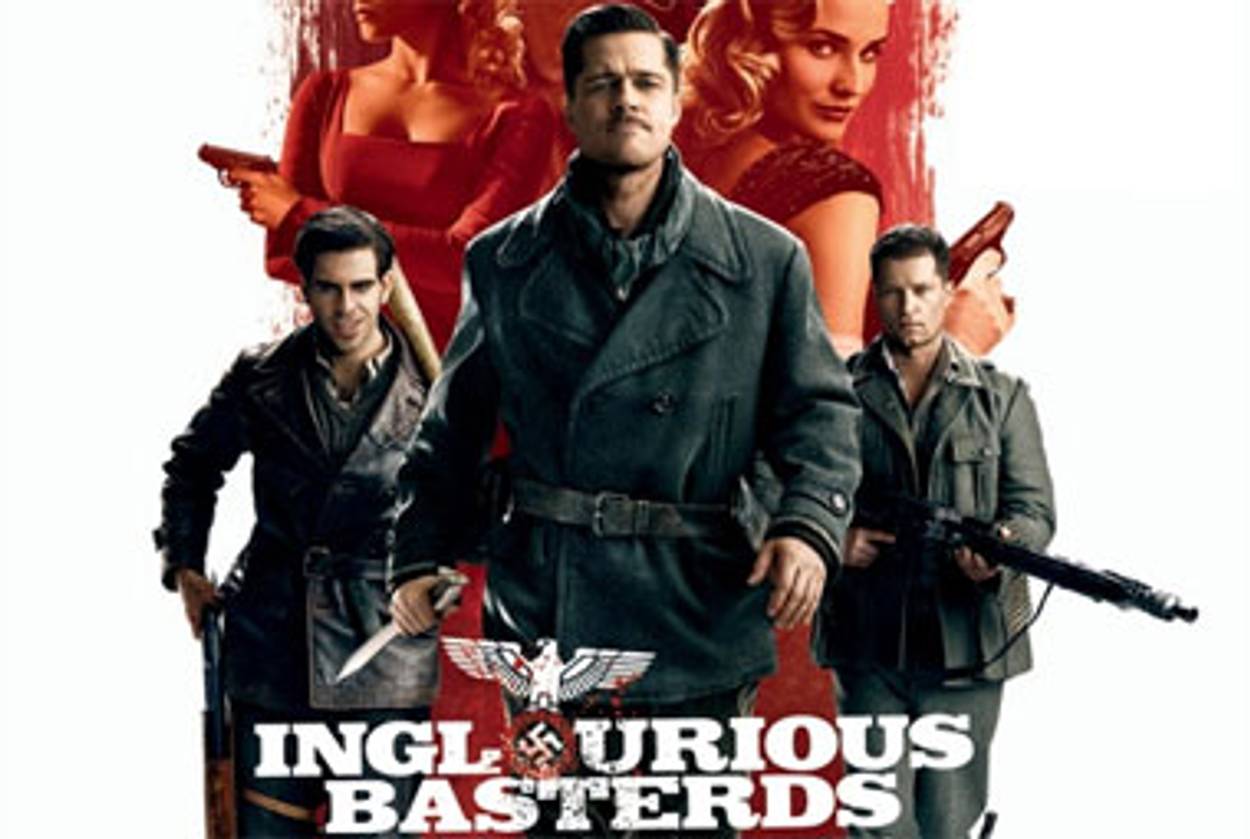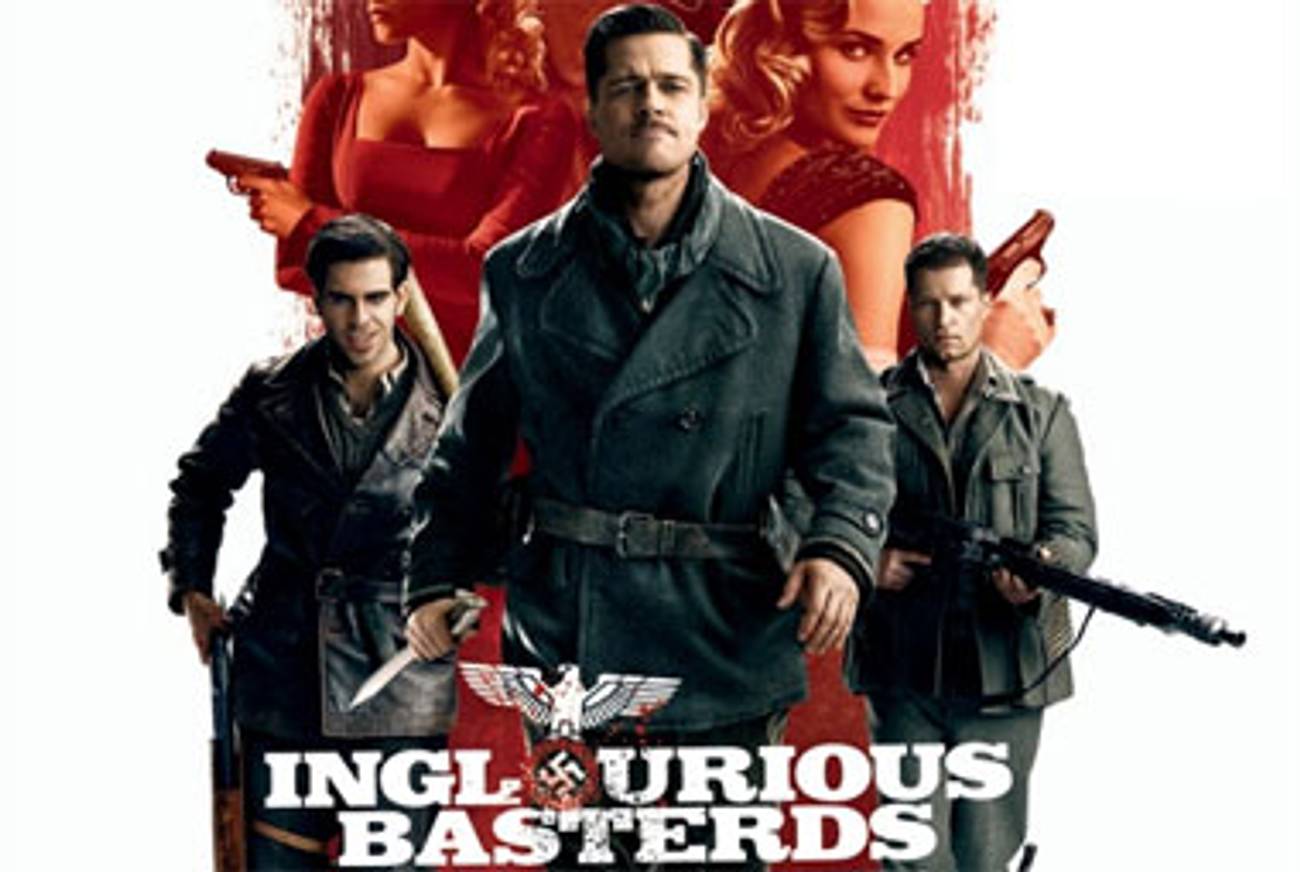Critics Fascinated, Repulsed, and a Little Bored
By ‘Inglourious Basterds’




Quentin Tarantino’s version of the World War II epic opened today, and critics seem to find the film more interesting to discuss than to watch. It’s “unforgivably leisurely, almost glacial, a film that loses its way in the thickets of alternative history,” writes Kenneth Turan in the Los Angeles Times; Manohla Dargis of The New York Times agrees: “rarely has one of [Tarantino’s] movies felt as interminable as this one,” she writes. The New Yorker’s David Denby says “it’s too silly to be enjoyed, even as a joke,” and even J. Hoberman at the Village Voice, who wrote one of the film’s more positive reviews, found it “a tad long at two and a half hours and a little too pleased with itself.”
The same critics, though, have engaged deeply with what the film means, comparing it (often negatively) with movies by Ernst Lubitsch, Charlie Chaplin, Mel Brooks, and Steven Spielberg. “Here is an alternate World War II, in which Jews terrorize and slaughter Nazis—a just Holocaust,” Hoberman writes. “Schindler’s List comforted audiences with similar, albeit less outrageous, reversals.… However devoted to movie magic, however, Spielberg would never be so tasteless as to admit the excitement he experienced in asserting his will over history.” In Slate, Dana Stevens agrees that “Tarantino’s rewriting of the war’s ending is audacious and perversely enthralling,” but asks, “Is the best way to work through the atrocities of the 20th century really to dream up ironically apt punishments for the long-dead torturers?” Denby sums it up: “Tarantino may think he is doing Jews a favor by launching this revenge fantasy…but somehow I doubt that the gesture will be appreciated.”
Ari M. Brostoff is Culture Editor at Jewish Currents.